- Home
- Ward Wagher
Accidental Nazi Page 4
Accidental Nazi Read online
Page 4
“I know you don't like it, but it is much safer, Children.”
Frau Marsden set a tureen of potato soup on the table, then ladled it into the children's bowls. Schloss then filled his bowl. The aroma of sausage and onion in the creamy soup smelled wonderful.
“This looks excellent, as usual, Frau Marsden,” he said.
She only nodded, then retreated to the kitchen.
He dipped his spoon into the soup, and began the meal, trying to keep up a conversation with the children. The soup was surprisingly good. As he ate, he tried to take in details of the room. The combination of the heavy blackout curtains, and the dim bulbs in the chandelier left the room in shadow. The china and the cutlery appeared to be of high quality. The typically heavy German furniture also looked as though it had been manufactured with care. At some point he needed to examine his family records. Did he have any money to speak of? Where was his wife?
Forty-five minutes later he carried his daughter as Frau Marsden led Hans-Friedrich to the bedroom that had been constructed in the basement. Anna-Lisa was asleep when he eased her into the bed. The boy crawled into his bed, and looked as though he would drop off at any time. Frau Marsden switched on a lamp atop a dresser. It had a low-wattage candelabra bulb, and provided just enough light to see, if one of the children awakened in the night.
He followed the old woman as she made her way up the stairs. The treads creaked under her weight. She paused in the kitchen.
“Would Herr Schloss like me to prepare something to eat at the office?”
“No,” he said. “I can grab a bite when I come home to change.”
“What happened today?” she asked.
“You probably heard the radio item that Hess is acting Fuhrer.”
“Is he capable?”
“No, not in the least. But at this stage he would be a threat if he knew what he was doing.”
“The meeting must have been difficult.”
He wondered why he was even sharing these things with her, but her questions were so perceptive.
“Picking Hess was actually the easy part. What to about the war was the toughest. I was able to halt some things that would have destroyed the country in the long run. There are other things I must stop.”
“Sometimes it requires the right man with the courage to do those things.”
“I don't know who that would be, Frau Marsden.”
“I am sure you will figure things out, Herr Schloss.”
“Perhaps you are more intelligent than I.”
“No, Herr Schloss. I always remember my place.”
She switched the lights out as he pulled open the front door. One of the guards was standing by the door. He could see the driver waiting in the car in the dark. One of the guards whistled. A moment later another of the guards trotted from behind the house. They were watching the house closely. Or, maybe they were watching him, he thought. It was certainly easy to become paranoid in this place.
# # #
June 11, 1941 2:00 AM
Nazi Party Headquarters, Berlin
Karl Rainer leaned back in his chair and stretched. It had been a little over fourteen hours, yet it seemed like days since the death of the Fuhrer. He was weary, but also knew that the man in the inner office had to be exhausted. He wondered what drove people like Heinrich Schloss. He had worked for Schloss for five years and the man was an enigma. Oh, there was the persona that Schloss clearly wanted the world to see. But Rainer rarely knew what Schloss was really thinking. Oh, the party leader was ambitious – that was clear from his actions against Bormann. But Rainer always tried to understand what really drove people.
Today, however, revealed a much more transparent Schloss. It was as though the airplane crash at Tempelhof had spurred the man into action. Schloss had always excelled at making snap decisions, but today he drove through to take leadership, particularly in regards to the men in the Fuhrer’s meeting room. In the past, Schloss had often deferred to Himmler. Today, however, he had simply assumed leadership. Rainer pondered what he observed.
Schloss had never been interested in the trappings of power. He had controlled a substantial portion of the Nazi party by moving behind the scenes. His elimination of Bormann had only occurred when his hand was forced. And he was clearly not interested in the Fuhrer’s position, either. But there was no question he was driving the government forward according to an inner agenda Rainer had not seen before.
The events of the day had changed Schloss. That much was clear to Rainer. And Rainer decided that he approved of the change. When the party leader’s wife had passed away recently, Rainer feared that Schloss would lose heart. Perhaps the death of Hitler had been the shock that caused Schloss to regain his footing. Rainer hoped so.
CHAPTER FIVE
June 11, 1941 10:00 AM
Reich Chancellery, Berlin
“I thought if it was all right with the governing council, I would move into the Fuhrer's apartment,” Hess said.
“It will not be all right with the council,” Schloss snapped. “You are Acting Fuhrer, Hess. Never forget.”
Hess looked like he would wilt. “I only thought...”
“You weren't thinking. I think it's a good idea for you to base yourself in the Chancellery. Ask the Building Meister to procure an apartment for you. But stay out of Fuhrer's apartment.”
“As you wish,” Hess said.
Schloss studied the other man. Hess clearly wasn't convinced. Then he mentally shrugged. The Deputy Fuhrer would either survive or he would not. He would remain useful only if he maintained a semblance of reason.
“The reason I wanted to speak with you, Rudolf, is that Himmler and Goering are going to try to get Barbarossa back on the schedule. I agree with you. If we go into Russia we will lose the war. Are you prepared to do anything necessary to stop this madness?”
“Of course I am. But if the Reichsprotektor orders the Reichsmarshall to mount the operation, there is little we can do.”
Schloss twisted his hands behind his back. He wondered if he had the courage to do what would be required. “Are you with me on this, Rudolf? I will not allow you to become weak in the knees.”
“I am with you, Herr Partieleiter.”
“Okay. Now, let us review the agenda for the meeting.”
The two men spent ten minutes discussing the agenda before the others got there.
“The co-pilot was conscious this morning,” Himmler said, as the meeting begun. “Also, the Luftwaffe mechanics discovered an apparent mechanical failure on the Fuhrer's aircraft. One of the appendages on the wing became detached.”
“Was the copilot able to confirm anything?” Goering asked.
Schloss thought the question was revealing. Normally the Luftwaffe would have investigated an aircraft accident, but Himmler was clearly in charge here.
“The copilot said that just as they were setting down, the aircraft went out of control. Also it appears that at the same moment the pilot suffered a heart attack. The doctors are doing an autopsy this morning.”
“Amazing the copilot survived at all,” Schloss said.
“He was thrown clear when the aircraft cartwheeled,” Himmler said. “We recovered the Fuhrer's body, of course. Because of the fire it will be necessary for a closed casket when he lies in state.”
Goering shook his head. “I still cannot believe it. Our Fuhrer dead. Life goes on, but it will be difficult.”
Ribbentrop glanced at Goering, then looked at Himmler. “Is there any way to tell whether this accident was purposeful?”
“You mean that someone succeeded in assassinating the Fuhrer? No. The copilot said that Baur was planning to down-check the airplane when they landed. As to whether someone loosened the part on the wing I do not know. We can, of course, say anything we want to about the cause.”
“Might it be helpful if we said we discovered a conspiracy of Jews that sabotaged the airplane?” Goebbels asked.
Himmler looked thoughtful. “I believe we
can discuss that. Have you ascertained the mood of the people?”
“They are still in shock. It will be days before people start thinking rationally about this.”
Himmler nodded. “I suggest then that you and the Reichsmarshall should begin working on a story about this. That way it will be ready if we need it.”
Schloss studied Himmler and Goebbels, and wondered how he could stop this obscenity with the Jews. It was bad enough already. But in just a few months Himmler would begin construction of the death camps. And then things would be horrible.
“Next item,” Hess said, taking control of the meeting. “The Fuhrer usually managed target selections for our night raids on England. We stood down last night.”
“What did the Englanders do?” Himmler asked.
“There were no raids last night,” Goering said.
Schloss held up a finger. “Yes, Herr Partieleiter?” Hess asked.
“I don't propose to have the strategic insight that our Fuhrer had, but may I suggest that we halt our bombing raids on England and see if they continue to desist. We, of course, must be prepared to forcefully defend our skies if they attack again.”
Goering looked thoughtful. Of course, it was his Luftwaffe that was bleeding in the skies over England. “The idea has merit. What do you think the ultimate goal should be, Herr Partieleiter?”
“That we build up our strength and make a serious effort to destroy their industry and close their ports. With all due respect to our Fuhrer, I do not believe bombing London has bought us anything.”
Goering stared at the granite table top for a while. It grew quiet in the room. Schloss wondered if he had ventured too far.
“The idea has merit,” Goering said. “I would agree to a temporary halt to study this.”
“Perhaps we ought to explore ways to reach some kind of an accommodation with the English,” Hess said.
Himmler looked at Hess like he was an insect. “Do not play games, Rudolf. As long as Churchill is in power, the only way the English will agree to peace is if we kill every last one of the subhuman creatures.”
Hess turned pale. “I meant no disrespect, Herr Reichsprotektor.”
“I worry about you, Hess,” Himmler continued.
“Enough,” Schloss said. “Rudolf, there is nothing wrong with trying to reduce our problems, but Herr Himmler is correct. The English do not want peace.”
“Of course, Herr Partieleiter,” Hess said. He was now very subdued. He looked down at the agenda.
“The next item is the Fuhrer's funeral.”
Goebbels began passing out sheets of paper around the table. “This is the outline of the activities for the day of the funeral.”
The room quieted as each scanned the notes. Himmler was the first to look up.
“Do you not think it disrespectful to entomb the Fuhrer in the Invalidenfriedhof?”
“You will note that the military cemetery is temporary until Speer can design and complete the memorial. This seemed like the best solution given the circumstances.”
Himmler scanned further in the document. “I do like the slow march from the Chancellery to the cemetery, and this is the logical place for him to lie in state.”
Goebbels nodded. “Sad as it may be, I think the Fuhrer would appreciate our making a propaganda coup out of the event. We are issuing press credentials to all of the neutral organizations. This will generate considerable sympathy in the United States. I think it will serve to pull our people together as well.”
“You have thought this through carefully, Joseph,” Schloss said. “I really cannot think of a thing to add to it.”
Goebbels smiled broadly. “Thank you, Heinrich. We do try.”
Schloss thought the smile looked wildly out of place on the cadaverous visage of the propaganda minister. He briefly ruminated on what he knew about Goebbels. Part of the inner circle, he was undoubtedly one of the Nazi monsters. Yet the man doted on his wife and children. It was just one more example of the insanity of this time.
“I believe we can leave this with you, Joseph,” Himmler said. “I know my office been cooperating with yours on the plans. What are the expectations from the diplomatic community?”
“I received a cable this morning,” Ribbentrop said. “Stalin is sending Molotov to the funeral.”
Goering snorted. “Just as we are getting ready to plant the knife in Stalin's back.”
“Something you can take advantage of, no doubt,” Schloss said, nodding to Goebbels.
Goebbels grinned again. Schloss found it positively creepy, although it didn't seem to bother the others.
“I expect to capture quite a lot of footage of our close ally from the East,” Goebbels said.
“Il Duce expects to attend,” Ribbentrop said. “In fact, I believe he is on his way as we speak.”
Himmler sighed. “Once again we must entertain that fool. Is this something we can entrust to you, Rudolf?”
Hess ignored the knife hidden in Himmler's words. “Of course, Herr Reichsprotektor. I would be happy to do so. I have become friends with Herr Mussolini.”
Schloss thought it was a good idea, too, although he was starting to worry about Hess's ability to get himself into trouble when left without adult supervision.
Hess continued speaking. “Of course, it might be more impressive to Il Duce if I moved into the Fuhrer's apartment.”
“Perhaps it would be wiser to preserve the Fuhrer's apartment as a permanent memorial,” Goebbels said.
“I quite agree,” Goering said. “We do not want to get ahead of ourselves.”
Himmler glared at Hess, who now looked abashed. Schloss glared at him too. Hess apparently really was a light-weight.
“Was there anything else, Joachim?” Schloss asked.
“Yes. Our ambassador in Washington asked for instructions vis a vis our tragedy. He thinks there is substantial sympathy in the US.”
Schloss leaned back in his chair, gazing at the ceiling. He wondered if there was another opportunity here, or if had already pushed things as far as he dared.
“What are you thinking, Herr Schloss?” Ribbentrop asked.
“Suppose we let them think we are more moderate than the Fuhrer? Send Roosevelt a message that we really do not want a war with the United States.” Too late he remembered he had not yet confirmed that Roosevelt was actually the president in this strange world he now inhabited. He glanced around, but nobody looked confused.
“What is your game, Schloss?” Himmler asked. “You turn back every initiative the Fuhrer worked on.”
“What does it hurt if we can get the Americans to buy a deception? They have got to be close to breaking off diplomatic relations. The longer we can postpone that; the longer America sleeps.”
“I do not think America is sleeping,” Himmler said.
“Maybe, maybe not,” Schloss said. “I think there is no harm in this action.”
“I believe it is a good idea,” Ribbentrop said.
Schloss looked at Hess. “Rudolf, why not get with Joachim and prepare a message to send to the American president. I would like the rest of us to see it before you send it, though.”
“Of course, Herr Partieleiter,” Hess murmured.
The group spent several hours working their way through the agenda. It was a long list. Most of the items were routine decisions normally made by Hitler on a daily basis. Nobody trusted Hess to make good decisions, and the group worked at maintaining consensus. Schloss reflected that nobody in the room wanted outright strife between them at the moment. But he was not sanguine about the maneuvering that was sure to be happening behind the scenes. Hitler had excelled at playing these men off against one another, and that chemistry would not quickly change.
It looked as though the meeting was coming to a conclusion when Himmler spoke. “I thought perhaps everyone would like an update on the planning for the Final Solution.”
Schloss felt a chill run up his back and his stomach began churning. He also noticed H
immler staring at him, as though in challenge. He leaned back and gazed about the room to study the reaction of the others. Bright anticipation hovered in Goebbels' eyes. Ribbentrop looked disinterested. Goering looked down at the table as did Hess.
No one spoke so Himmler quickly outlined his thoughts about creating internment camps for the Jews and other undesirables. What was clearly understood was that the camps were merely a way station for the unfortunates caught up in the pogroms of the Third Reich. After separating the Jews from their property, the SS would separate their souls from their bodies.
“You have nothing to say, Heinrich?” Himmler asked, looking across the table. “You were quite vocal in opposing this plan before the Fuhrer approved it.”
“That was then,” Schloss said as he thought frantically.
“What, no schemes for moving the Jews to a homeland in Palestine?”
“Are you going somewhere with this, Herr Reichsprotektor?”
“You seem to be undoing many of the other initiatives of the Fuhrer,” Himmler said. “I thought perhaps...”
“Listen, Herr Reichsprotektor,” Schloss interrupted, speaking through clenched teeth. “I do not believe you fully understand the danger facing those of us in this room. We are riding a tiger.”
“Oh, I do not think we need another half hour of your moralizing, Herr Partieleiter,” Himmler said.
“Is that what you think it is?” Schloss stood up. “Let me tell you something. Let me tell all of you something. Herr Hitler held this country together by the force of his will. He held us together in the same way. We no longer have that will. We no longer have his genius. I will not have you stirring up dissension in this room, Herr Reichsprotektor. I do not care who you are. Because the moment you succeed, we are all dead!”
Schloss watched his actions in amazement. Even though he was acting the role, he was truly angry. He had leaned over and screamed at the man across the table, and watched the spittle flecks land on the granite. Himmler was now a pasty white and Schloss wondered if it was from fear or anger.
“I will not be spoken to in such a fashion,” Himmler grated out.

 The Mountains of Montora (The Chronicles of Montora Book 1)
The Mountains of Montora (The Chronicles of Montora Book 1)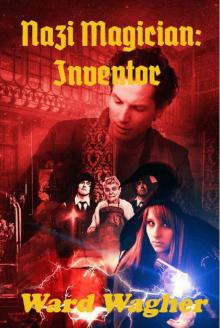 Nazi Magician: Inventor
Nazi Magician: Inventor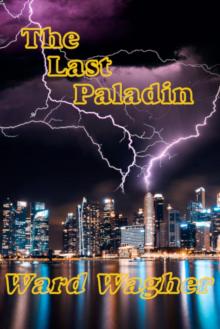 The Last Paladin
The Last Paladin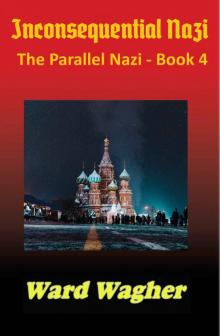 Inconsequential Nazi
Inconsequential Nazi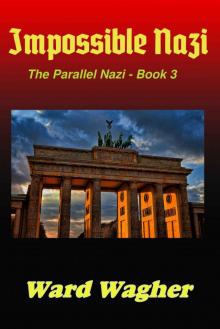 Impossible Nazi
Impossible Nazi The Snows of Montora (The Chronicles of Montora Book 3)
The Snows of Montora (The Chronicles of Montora Book 3) The Margrave of Montora (The Chronicles of Montora Book 2)
The Margrave of Montora (The Chronicles of Montora Book 2) Gravity Rising (The Parallel Multiverse Book 2)
Gravity Rising (The Parallel Multiverse Book 2)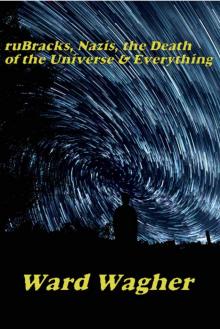 ruBracks, Nazis, the Death of the Universe & Everything (The Parallel-Multiverse Book 1)
ruBracks, Nazis, the Death of the Universe & Everything (The Parallel-Multiverse Book 1)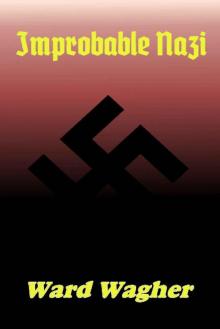 Improbable Nazi (Parallel Nazi Book 2)
Improbable Nazi (Parallel Nazi Book 2) Accidental Nazi
Accidental Nazi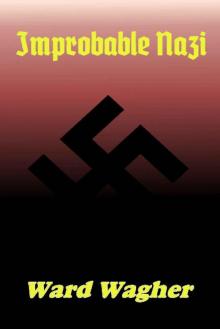 Improbable Nazi
Improbable Nazi